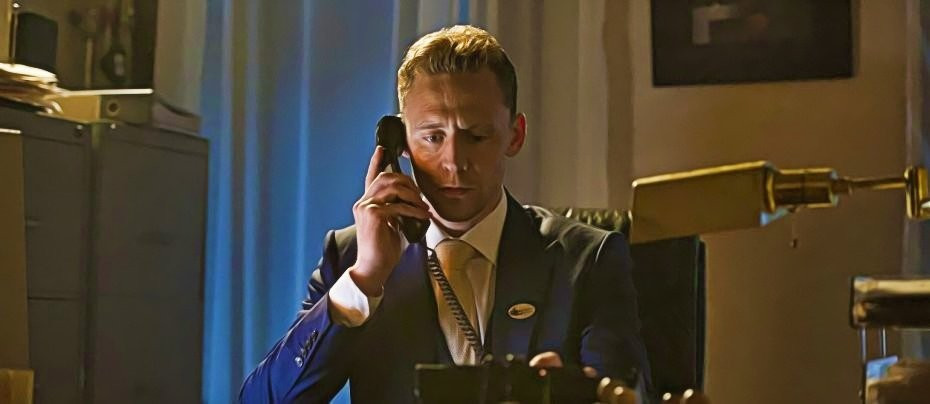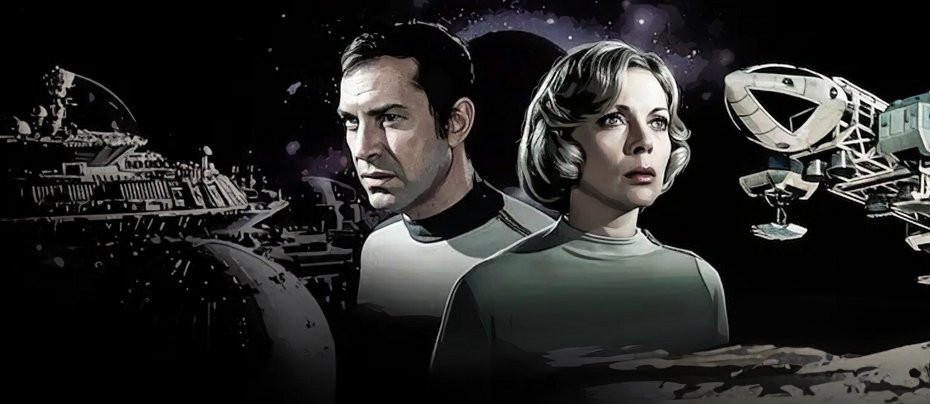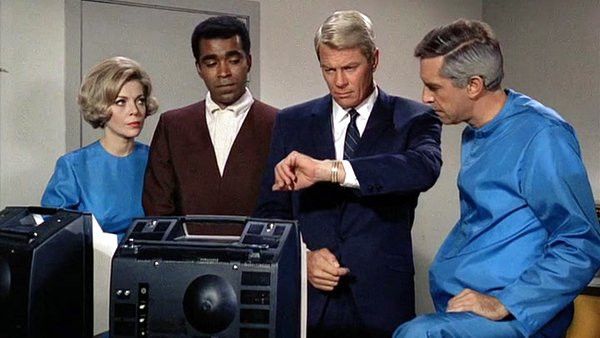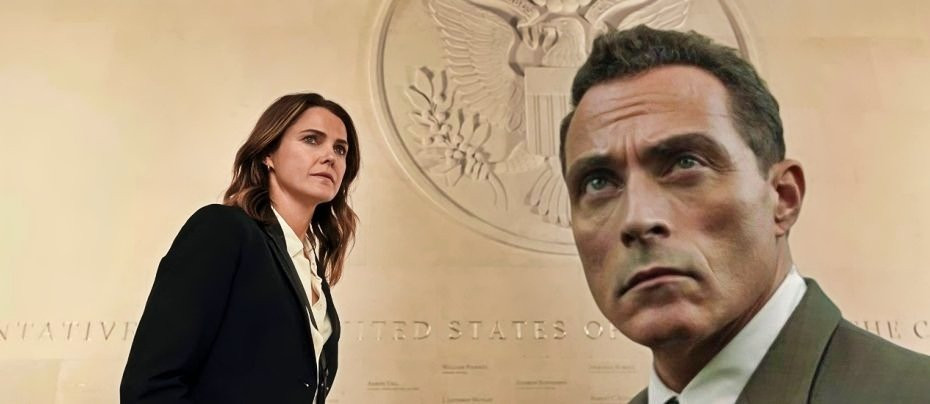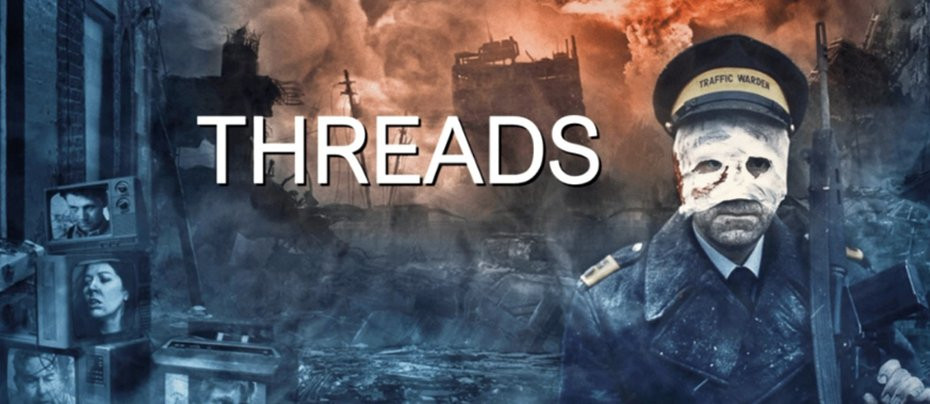
By Dawn's Early Light
1990 - United StatesReview by John Winterson Richards
It is no surprise that what might be termed the Golden Age of the Nuclear War Thriller, including the Nuclear War Thriller Satire, occurred in the immediate aftermath of the Cuban Missile Crisis of 1962, with three major feature films, Doctor Stangelove, Fail Safe, and The Bedford Incident being released in quick succession. The strangely masochistic subgenre then fell into disfavour, with what happened before and after actual nuclear war, in the form of the conspiracy thriller and the Post-Apocalyptic drama, being more in tune with current events and popular interest in the late Sixties and the Seventies.
A revival of the nuclear war film proper, and a sort of Silver Age, followed the Inauguration of the supposedly hawkish Ronald Reagan as President of the United States in 1981, much of Hollywood and the cultural Establishment being on the opposite side of the political spectrum from him. In 1983, the theory behind nuclear deterrence, "mutually assured destruction" - with the unhappy acronym MAD - was questioned in the cinema by the well made WarGames and on American network television by The Day After. The same year a novel called Trinity's Child, written by the Left-leaning journalist William Prochnau, was published and seemed to be begging for adaptation.
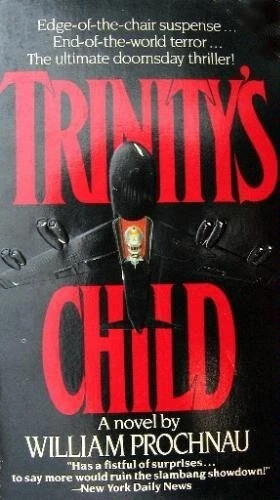
Then everything went off the boil and it was only in 1990 that the adaptation finally reached the screen as an HBO television movie. By that time, it had ceased to be topical. The Berlin Wall had fallen only weeks after the end of filming and the Cold War seemed to be over. Rather embarrassingly, in spite of Hollywood's best efforts to convince everyone to the contrary, it turned out that MAD actually worked.
The title of the novel Trinity's Child, alluding to the Trinity test of the first atomic bomb by Oppenheimer and Co in 1945, was obviously too obscure, and possibly blasphemous, for a television audience. Yet the title chosen in its place, By Dawn's Early Light, is perhaps too similar to that of another project with a line from the United States National Anthem in its title, Twilight's Last Gleaming, one of those Seventies political thrillers but one with a nuclear weapon theme and the Doctor Strangelove plot device of a rogue General possibly adding to the confusion.
To be honest, Prochnau's novel is not very well written. Although he includes a lot of very convincing Tom Clancy-style technical jargon, and he must have done his research because apparently there was an investigation into whether there had been a security leak, which established that everything sensitive in the script was in the public domain, like Clancy, he is not subtle about his political prejudices, on the other side from Clancy's, while his characterisation, dialogue, and plotting are less convincing, to put it politely.
The adaptation is therefore a great improvement on the source material. The script keeps some of Prochnau's better lines but not the long conversations around them which would be wholly unrealistic in situations with intense time pressure. The characterisation is fixed by relying on an excellent cast to give the rather two dimensional caricatures a humanity they lack in the book. Yet the plotting problem remains as they still make decisions that make little or no sense. Perhaps that was the point Prochnau was trying to make, but, if so, he made it badly: even wrong decisions need to have their own internally consistent logic if they are to be dramatically credible. There is no shortage of idiots in the world but they never think of themselves as idiots: the viewer has to see why they think they are being smart and this is often not the case here.
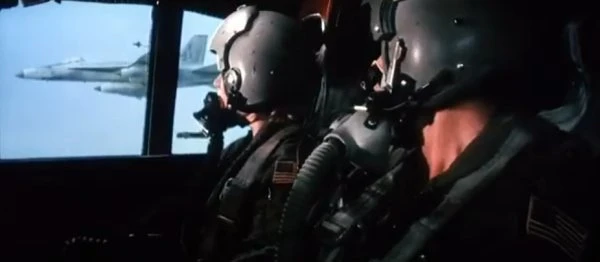
There are also absurd moments like a supposedly rogue bomber just happening to catch sight of an aircraft carrier almost directly below. In reality, they would have noticed each other long before and would never have been allowed to get so close to each other.
The basic structure of the piece owes a lot to the comedic Doctor Strangelove, which basically established the whole subgenre and mocked it to death at the same time. In both cases, we have three main plotlines in a limited number of locations representing three different levels in the chain of command - those immediately around the President of the United States, the military officers supposedly directing events, and the crew of a single B-52 bomber at the point of the spear, responsible for carrying out what their superiors decide but ultimately having a crucial influence on the course of events themselves.
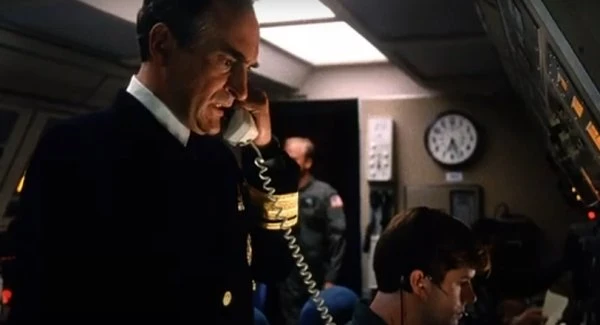
The big differences are that in By Dawn's Early Light, the President is not safe in a Sir Ken Adam designed War Room surrounded by advisers, and the officers are, for the most part, not eccentrics but serious people in three different places - the doomed Strategic Air Command headquarters on the ground, the Command's airborne command and control post designated "Looking Glass," and "Nightwatch," a converted Jumbo Jet that becomes "Air Force One" when it picks up a designated "successor" to the President. This turns out to be the Secretary of the Interior, well down the succession list and a man who has never been briefed on nuclear strategy. What could possibly go wrong?
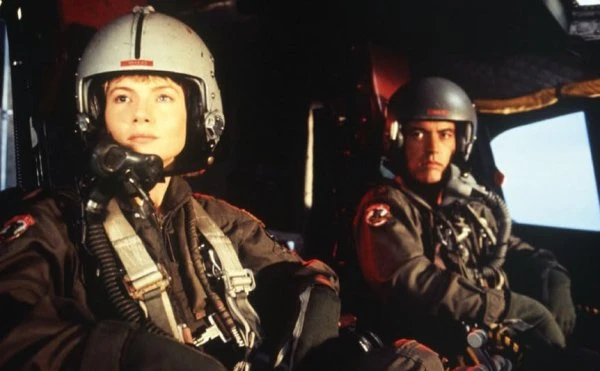
Rebecca De Mornay and the always compelling Powers Boothe are in the cockpit of the B-52, despite the fact that in real life a woman was still not allowed there in 1990. The progressive good intentions of showing a woman in what was then exclusively a man's job are subsequently rather undermined by the implication that a woman would be less likely to obey orders in such a situation. The two characters are introduced as having a purely physical affair, contrary to the protocols of the rigorous "Personnel Reliability Program." This plot element is absent from the book and was presumably introduced as a "human interest" angle, because they are otherwise not particularly interesting, or indeed likeable, but it leads nowhere.
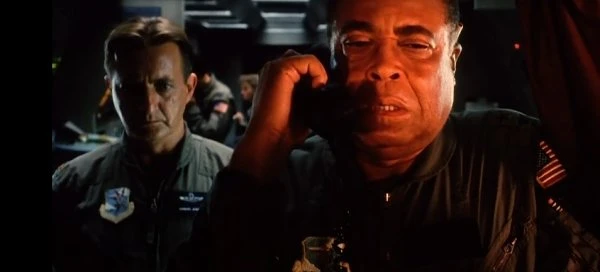
The late, great James Earl Jones, who started his career with a supporting role on the B-52 in Doctor Strangelove, was evidently promoted, since he appears here as the Major General in command of "Looking Glass": one of his best performances was rewarded by a deserved Golden Globe nomination. Jeffrey DeMunn is a sensible Admiral on "Nightwatch" while Rip Torn goes completely Rip Torn as a not so sensible Colonel on board who seems straight out of Doctor Strangelove himself. Martin Landau, before his late career renaissance, is suitably Presidential as the conflicted President. Other familiar faces, in supporting roles include Peter MacNicol (Ally McBeal) as the President's young ADC, Ken Jenkins (Scrubs) as the second in command on "Looking Glass," Daniel Benzali (Murder One) as a FEMA official with access to a very convenient radio link, and Glenn Morshower (24) as an amiable fighter pilot.
Apart from a couple of effects shots that have not aged well, the production still looks impressive. It is only when one has an eye for such things that one sees how it was filmed on a television budget with a limited number of locations and a relatively small cast - the priority was clearly quality not quantity. If one is not looking for such things one would not notice them because the story is carried along at a brisk pace by director Jack Sholder. He is best known for his horror films, so it is no surprise that he knows how to maintain tension, but he also gives a fine sense of the urgency of having to make huge decisions very, very quickly.
One may find oneself thinking about those decisions long after watching. By Dawn's Early Light is therefore unusually intellectual for a television film, asking challenging questions about what we would do in such situations, or what we would want our leaders to do. In the end it packs a surprising emotional punch as well. It is quite frightening how people in specific roles can be trained and conditioned to accept death - their own and possibly countless others' - as a matter of course. Whether they really would act this way in a real nuclear war is another matter.
Seen this show? How do you rate it?
Seen this show? How do you rate it?
Published on January 18th, 2025. Written by John Winterson Richards for Television Heaven.


